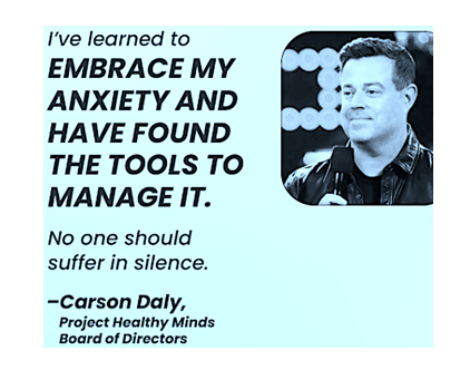It has long been known that the human body and mind are inextricably linked. In many ways, our physical health is tightly bound to our mental health, in a symbiotic relationship often referred to as the mind-body connection.
Scientific research repeatedly affirms the link between our mental and physical health. One study, for instance, found a direct correlation between stress levels and white blood cell function. The mind-body connection is not simply a theory; it’s a fact.
Our emotional state can directly impact our blood pressure, heart rate, sleep patterns, appetites, and more. If your anxiety or stress has ever manifested in a painful stomach ache or shaky hands, you know exactly why.
Just as our mental health can have a physical impact, our physical health can drive our mental wellbeing, too. If we aren’t caring for ourselves physically, our mental health could suffer. Paying close attention to our physical wellbeing can serve to support our minds just as much as our bodies.
Exercise has proven mental health benefits, and has been repeatedly shown to reduce anxiety, depression, and mood disorders. It can also bolster sleep and cognitive function. There are countless reasons why you should prioritize movement in your daily life, and mental health is definitely one of them.
Exercising for your mind
The mental health benefits of exercise are very real. Not only can regular movement boost your mood and energy levels, but it can also substantially reduce various mental health issues, including anxiety, depression, ADHD and general stress.
In fact, some studies have even demonstrated that exercise can be as effective as medication for treating mild to moderate depression and anxiety. It’s no wonder, then, that those who exercise regularly experience lower rates of mental distress.
Here’s how physical activity can address various mental health concerns:
Anxiety and depression
Loosening your muscles through exercise relieves tension in the body—as well as the mind. The simple sensation of your feet hitting the ground, or your body stretching into a new position, can serve as a useful distraction from distressing thoughts. Plus, exercise releases endorphins, which are known as the body’s natural pain-reliever and pleasure-producer. By minimizing tension and releasing happy hormones, exercise naturally combats symptoms of anxiety and depression.PTSD and trauma
As with depression and anxiety, physical activity can be very useful in treating PTSD and trauma. Exercise bolsters the nervous system and helps it to become “unstuck”—as it tends to do upon experiencing trauma. Pay attention to how your body feels as you move, as this sense of sharp focus on your physical senses will serve to relax your mind and refocus it on positive thoughts. Outdoor activities, in particular, have been known to lessen symptoms of PTSD.ADHD
Exercise has also shown to improve concentration levels, as well as memory. Given that physical activity boosts dopamine levels (a type of neurotransmitter in the body), it has the propensity to improve one’s ability to focus.Insomnia
If you suffer from insomnia, try incorporating more movement into your daily routine. Exercise, particularly in the morning or afternoon, has been linked to improved sleep patterns.Poor memory
Exercise boosts blood circulation, as well as the production of Brain-Derived Neurotrophic Factor (BDNF)—a protein in the brain that assists with memory and absorbing new information. Generally, exercise sharpens brain capacity and cognitive function.Low energy
Believe it or not, exhausting your body physically can actually promote higher levels of energy. Regularly increasing your heart rate will inherently increase your body’s energy supply, since exercising boosts the circulation of oxygen, and encourages your body to use energy more efficiently throughout the day.Overall mood
Working out has incredible mood-boosting benefits. Whether you suffer from mental health challenges or not, everyone has bad days, and exercise is a key antidote to feeling down. Plus, physical activity can also promote a stronger sense of confidence, self-worth and gratitude.
Best exercises for stronger mental health
When it comes to mental health, any exercise will have a positive impact. That said, there are a few types of physical activity that have shown to be particularly effective at easing mental health symptoms, including: cardiovascular, strength training, flexibility, and balance exercises.
While high-intensity exercises are excellent for getting your heart rate up, there’s also something to be said for the power of slowing down. Simply breaking up your work day with an outdoor walk can make a marked difference to your mental wellbeing. As little as 15 minutes of fresh air can clear your mind, and make a daunting day feel more manageable.
Yoga is another relaxing, low-impact exercise, which is innately meditative. Thoughtful breathing exercises can promote a sense of peace and tranquility that will not only soothe your muscles, but also your mind.
Know yourself
While exercise is generally an essential tool to improve your overall well-being, it’s important to know yourself and your own mental health needs. A great way to do that is to try our YMI survey, which was created by an expert team of psychotherapists, doctors, and data scientists.
The survey can give you the answers you’re looking for to better understand yourself, and subsequently determine what treatment approach—including exercise—is best for you.



